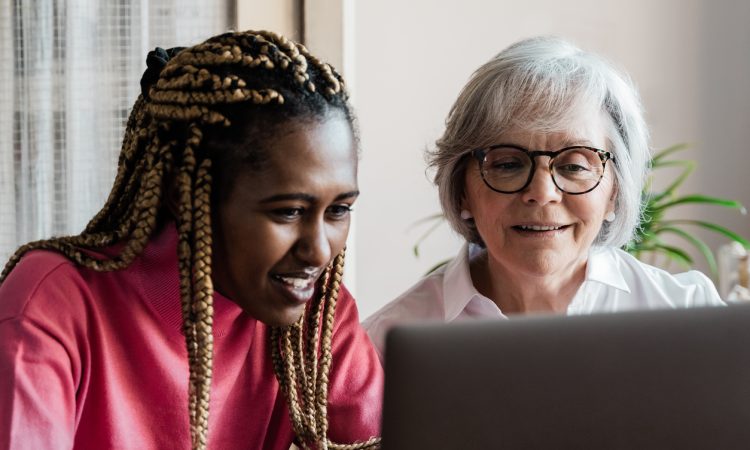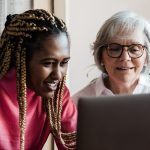My community involvement has often been connected to the education sector with an end goal of creating a more equitable society for all. Like many undergraduate students, I am well versed in the challenge of finding employment or experiences that align with your goals and values. But when I heard about People for Education (PFE), I knew the organization would be a perfect fit for me because my passions and values strongly aligned with their vision for strong public education to fulfill its role as a cornerstone of our society.
During my first few weeks, I was both excited and nervous because of the transitional period of change that the organization was going through. Because PFE is seeking to expand its theory of change with the inclusion of a youth engagement plan, I was given a great platform to share my opinions and ideas based on my lived experience.
This internship showed me that youth engagement allows us to form extremely innovative ideas alongside our practice knowledge. Furthermore, working in intergenerational spaces allows us to model the society in which we live, and, in turn, sets us up for success. I saw this in play when PFE staff and the youth advisory worked on tasks together such as planning for PFE’s first-ever intergenerational retreat or getting feedback for the design of its Annual Ontario School Survey.
What I learned about youth engagement and intergenerational spaces
My research experiences during my internship illustrated the importance of intergenerational spaces. The Allies 4 Youth Conference 2018, Generations United – 21st Biennial Global Intergenerational Conference and the 2022 Intergenerational Arbitration Symposium were all intergenerational gatherings that I examined at my time with PFE. The focus of all three gatherings was the same: to find common ground and brainstorm ideas that could be implemented to bring change within their sectors. It was research like this that demonstrated to me that intergenerational spaces for discussions allowed for the most growth at both an individual level and a societal level compared to adult-only or youth-only spaces for discussions.
I also completed a scan of youth conferences, which showcased the importance of youth voices to advocate for change. I came across the Shuswap Community Foundation, which has a youth advisory committee responsible for giving grants to youth-led organizations. Giving power to youth to make decisions led them to give grants to organizations that they thought best served youth of their community. Youth had more first-hand knowledge to inform their decisions compared to adults. We often say that we should play to our strengths in teams, but this is often not done in the case in decisions where youth are most knowledgeable.
My internship demonstrated to me that work opportunities in intergenerational settings allow students to grow in significant ways because understanding the different realms of our society can help individuals find their role in society.
People for Education Director, Policy and Research Robin Liu Hopson will be presenting on “How a Continuum of Learning Continues to Learn” at CERIC’s hybrid Cannexus conference, taking place Jan. 23-25, 2023. Learn more and register at cannexus.ceric.ca.
Transferring research knowledge to work and community activities
The research I completed has given me a foundation to advocate for youth voices to be heard in my communities. Though some people might argue that youth engagement where youth voices are heard, but power is not given, is better than no engagement at all, this approach will not result in changes to the systems of our society. Providing youth with platforms where they can only share ideas is a step in the right direction, but it also sustains the pre-existing problem: limited and performative youth engagement.
“Giving power to youth to make decisions led them to give grants to organizations that they thought best served youth of their community.”
My research and the relationships that I developed in my internship have been great for my personal growth. They have taught me many new skills and points of view that I can implement into my other activities. As a member of Vernon Silver Star Rotary and as a leader at Camp Next, I was able to make many connections with my work at PFE while getting involved in my communities through these two platforms. Doing research, forming connections with working professionals and reviewing survey designs taught me a lot about the diversity of obstacles that individuals are facing in different communities. This knowledge will help inform my planning at Camp Next and at meetings with Vernon Silver Star Rotary about inclusion and providing resources for all.
In addition, my community work also helped with my internship. For example, helping plan Camp Next allowed me to transfer skills to help plan PFE’s upcoming events with their staff and youth advisors.
I want my future community work to consist of activities that motivate students and learners to explore different avenues that may be of interest to them, and I strongly feel that this can be a significant stepping stone in making our society a more equitable place for all.
If you want to engage youth, provide them with resources
This internship allowed me to grow as an individual and enhance many skills such as creating a research proposal, report writing and communication skills through working with like-minded people from different communities. One lesson that stands out to me is that youth not only need to be provided with a platform to share their ideas, but also need resources to implement their ideas; this is the only way to make the most of intergenerational spaces. I am signing off for now as an intern, but I am excited to continue as a youth advisor with PFE for creating a better public education system for all.




